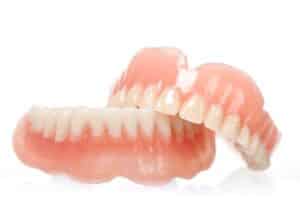The tongue, a vital part of our digestive system, plays a crucial role in taste, speech, and swallowing. But sometimes, a glance in the mirror reveals unwelcome dark spots marring its normally pink surface. While unsettling, these spots can arise from various causes, ranging from harmless to potentially serious. Let’s delve into the reasons behind dark spots on your tongue and explore treatment options.
Common Causes of Dark Spots
1. Black Hairy Tongue: This condition, though dramatic-sounding, is usually harmless. Tiny papillae, the bumps on your tongue’s surface, harbor dead skin cells. Normally, these cells shed regularly. However, in a black hairy tongue, the shedding process falters. The papillae elongate, trapping dead skin cells, debris, and sometimes bacteria, giving the tongue a black, hairy appearance. Factors like poor oral hygiene, smoking, excessive coffee or tea consumption, and certain medications can contribute to a black hairy tongue.
2. Transient Stains: Certain foods and beverages, like coffee, tea, berries, and even some medications, can temporarily stain your tongue. These stains are typically harmless and fade on their own with proper brushing or rinsing.
3. Injury: Accidental bites, piercings, or dental work can irritate the tongue, causing temporary discoloration that usually heals without intervention.
4. Pigmented Fungiform Papillae of the Tongue: This benign condition leads to small, harmless, brown, or black spots on the tip or sides of the tongue. It’s more prevalent in people with darker skin tones and usually doesn’t require treatment.
5. Vitamin Deficiencies: Deficiencies in vitamins B12 and folate can manifest as glossitis, an inflammation of the tongue that can sometimes cause dark spots.
6. Fungal Infections: A fungal infection called oral thrush can cause white patches on the tongue. However, in rare cases, these patches can appear brown or black due to trapped debris or dead fungus cells.
7. Smoking: Smoking tobacco can stain the tongue and irritate the papillae, potentially leading to dark spots.
8. Medical Conditions: In rare instances, dark spots on the tongue might be associated with underlying medical conditions like Addison’s disease (a hormonal imbalance) or Peutz-Jeghers syndrome (a genetic disorder).
When to See a Dentist
While most dark spots on the tongue are benign, some situations warrant a visit to your dentist. Here are some red flags:
- The spots are accompanied by pain, swelling, or bleeding.
- The spots don’t improve with treatment or worsen over time.
- The spots are irregular in shape or have raised borders.
- You experience difficulty swallowing or speaking.
Early diagnosis and intervention are crucial for any underlying medical condition that might be causing the dark spots.
Maintaining a Healthy Tongue: Prevention and Treatment
Here are some tips to keep your tongue healthy and prevent dark spots:
- Practice good oral hygiene: Brushing twice daily and flossing once a day removes food debris and bacteria that can contribute to discoloration. Consider using a gentle tongue scraper to remove dead skin cells.
- Stay hydrated: Drinking plenty of water helps flush out toxins and keeps your mouth moist, reducing the risk of staining.
- Limit staining foods and drinks: Enjoy coffee, tea, and red wine in moderation, and rinse your mouth with water afterward.
- Quit smoking: Smoking not only stains teeth but can also irritate the tongue.
- Maintain a healthy diet: Ensure you get enough vitamins, especially vitamins B12 and folate, for optimal tongue health.
- See your dentist regularly: Regular dental checkups can detect any underlying issues that might be causing dark spots.
Brushing gently with a soft-bristled toothbrush and using a tongue scraper can help remove debris when treating black hairy tongues. Avoid harsh mouthwashes that can irritate the tongue. In some cases, your dentist might recommend trimming elongated papillae.
If a fungal infection is suspected, your dentist might prescribe antifungal medication. Addressing any underlying vitamin deficiencies can also help resolve tongue discoloration.
Dark spots on the tongue can be unsettling, but in most cases, they are harmless and treatable. By understanding the potential causes and practicing good oral hygiene, you can keep your tongue healthy and pink. However, if you experience any concerning symptoms, don’t hesitate to consult your dentist. Remember, early diagnosis is key to addressing any underlying issues and achieving a healthy, confident smile.





